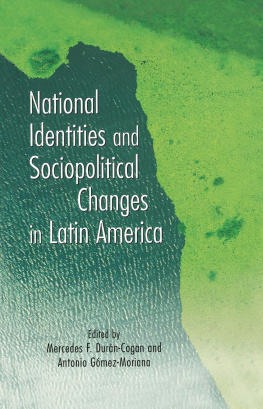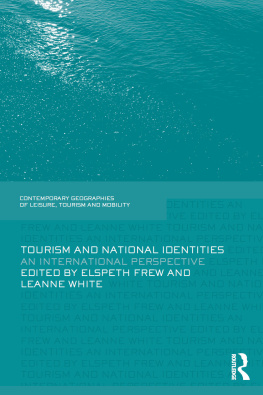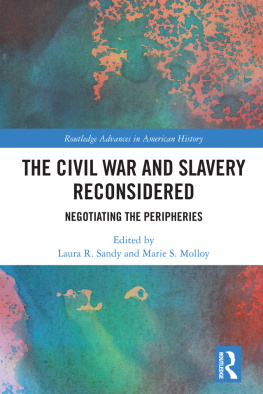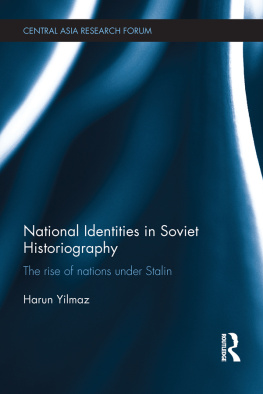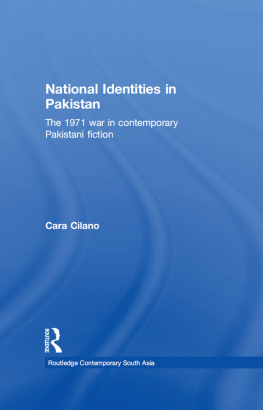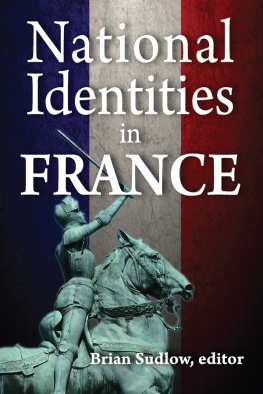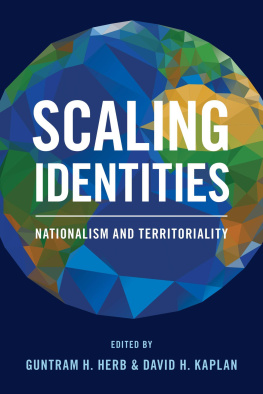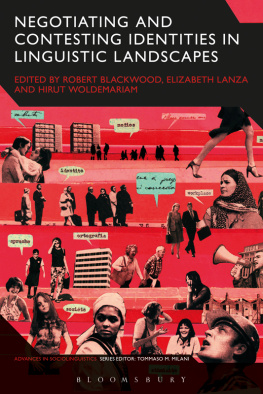NEGOTIATING NATIONAL IDENTITIES
Research in Migration and Ethnic Relations Series
Series Editor:
Maykel Verkuyten, ERCOMER
Utrecht University
The Research in Migration and Ethnic Relations series has been at the forefront of research in the field for ten years. The series has built an international reputation for cutting edge theoretical work, for comparative research especially on Europe and for nationally-based studies with broader relevance to international issues. Published in association with the European Research Centre on Migration and Ethnic Relations (ERCOMER), Utrecht University, it draws contributions from the best international scholars in the field, offering an interdisciplinary perspective on some of the key issues of the contemporary world.
Forthcoming
The Bosnian Diaspora
Integration in Transnational Communities
Marko Valenta and Sabrina P. Ramet
ISBN 978 1 4094 1252 6
Other titles in this series at back of book
Negotiating National Identities
Between Globalization, the Past and the Other
CHRISTIAN KARNER
University of Nottingham, UK
First published 2011 by Ashgate Publishing
Published 2016 by Routledge
2 Park Square, Milton Park, Abingdon, Oxon OX14 4RN
711 Third Avenue, New York, NY 10017, USA
Routledge is an imprint of the Taylor & Francis Group, an informa business
Copyright Christian Karner 2011
Christian Karner has asserted his right under the Copyright, Designs and Patents Act, 1988, to be identified as the author of this work.
All rights reserved. No part of this book may be reprinted or reproduced or utilised in any form or by any electronic, mechanical, or other means, now known or hereafter invented, including photocopying and recording, or in any information storage or retrieval system, without permission in writing from the publishers.
Notice:
Product or corporate names may be trademarks or registered trademarks, and are used only for identification and explanation without intent to infringe.
British Library Cataloguing in Publication Data
Karner, Christian.
Negotiating national identities : between globalization, the past and the other. (Research in migration and ethnic relations series)
1. NationalismEurope. 2. EthnicityEurope. 3. NationalismAustriaHistory. 4. Nation-state and globalizationEurope. 5. GlobalizationSocial aspectsEurope.
I. Title II. Series
303.482-dc22
Library of Congress Cataloging-in-Publication Data
Karner, Christian.
Negotiating national identities : between globalization, the past and the other / by Christian Karner.
p. cm. (Research in migration and ethnic relations series)
Includes bibliographical references and index.
ISBN 978-0-7546-7638-6 (hardback : alk. paper) ISBN 978-0-7546-7639-3 (ebook) 1. National characteristics, European. 2. NationalismSocial aspectsEurope. 3. Group identityEurope. 4. Identity (Psychology)Social aspectsEurope. 5. GlobalizationSocial aspectsEurope. 6. National characteristics, Austrian. 7. NationalismSocial aspectsAustria. 8. Group identityAustria. 9. Identity (Psychology)Social aspectsAustria. 10. GlobalizationSocial aspectsAustria.
I. Title.
D1055.K365 2011
320.54094dc22
2011002284
ISBN 9780754676386 (hbk)
ISBN 9781315597652 (ebk)
Contents
Acknowledgements
This book is the culmination of nearly a decade of research, reflection and writing. Needless to stress that the people who and the institutions that have supported me during this extended period of time have been many, perhaps too many to be named individually. Nonetheless, I would like to express special gratitude to the following. I was enabled to build the foundations for my research on (Austrian) national identity negotiations by a Leverhulme Trust post-doctoral fellowship from 2002 to 2004, for which I am deeply grateful. Early publications arising from this Special Research Fellowship, on which I build in parts of the following analyses, included articles in National Identities 7 (4) (www.tandf.co.uk/journals/titles/14608944.asp), Nationalism and Ethnic Politics 11 (2) (www.tandf.co.uk/journals/titles/13537113.asp), Ethnicities 7 (1) (www.uk.sagepub.com/journals/Journal200776), and Social Identities 14 (2) (www.tandf.co.uk/journals/carfax/13504630.html). I would like to thank Taylor & Francis for permission to re-use some of those materials for the purposes of this book. Further, I would like to thank the School of Sociology and Social Policy at the University of Nottingham for providing a supportive, intellectually stimulating environment. More particularly, special thanks must go to my colleagues Esther Bott, Davide Per, Nick Stevenson, Elizabetta Zontini and especially David Parker for their time, expertise, support and friendship over the years. My thinking for this book was helped by many hours of stimulating discussion with Alan Aldridge and Bernhard Weicht. Whilst all responsibility for what follows is of course mine alone, Alans and Bernhards time and help were and are much-appreciated. Most of all, the greatest debt of gratitude is due to those closest to me, whose help both practical and, especially, emotional has been humbling, unswerving and inspiring: this book is dedicated, with love and gratitude, to them first, my parents Christa and Peter Karner, and, second, Chrysanthi Lekka. Danke and E!
Introduction
For the past few years I have woken up to the same song every morning. My CD-playing alarm clock marks each new day with a song by Wolfgang Ambros, one of Austrias best known singer-songwriters. Its title translates as Id like to stay human; its lyrics include lines to the effect of I do not want to be sold like a commodity, not everything of value needs a price. First released in 1974, the song is more than a contribution to a musical genre, Austro-Pop, little known outside the Alpine Republic. It arguably needs to be seen in what was then a new social and historical context distinctly transnational and increasingly global in scope.
A year previously the beginning of a new, post-industrial age (Bell 1973) had been announced. A leading sociologist (Castells 1996; 1997; 2000) would subsequently identify the 1970s as the beginning of a new mode of development: a watershed in human history, beyond which communication and information technologies and the now globally inter-connected worlds of business and finance cut across national boundaries, creating a transnational network society, a space of flows between the worlds metropolitan areas and dominant economic actors; alongside, however, inequalities and social exclusions have continued and often deepened. In the comparatively privileged Western world the 1970s and 1980s also saw the growing cultural dominance of consumerism and structural changes of de-regulation and privatization associated with neo-liberalism. The collapse of Soviet-style communism and the end of the Cold War in 1989 led some to enthusiastically proclaim the end of history (Fukuyama 1992), the ultimate victory for democracy, laissez-faire capitalism and global markets. With the benefit of hindsight, the naivety of such prognoses is now apparent. Ethnic conflicts, resurgent nationalisms across and far beyond Europe, and the war on terror are but the most prominent examples of ideological antagonisms and of the significance of group boundaries in our globalizing era. Similarly, the current global economic crisis has led some economists to declare the end of neo-liberalism and has seen governments trying to re-assert their long lost primacy over the market.




